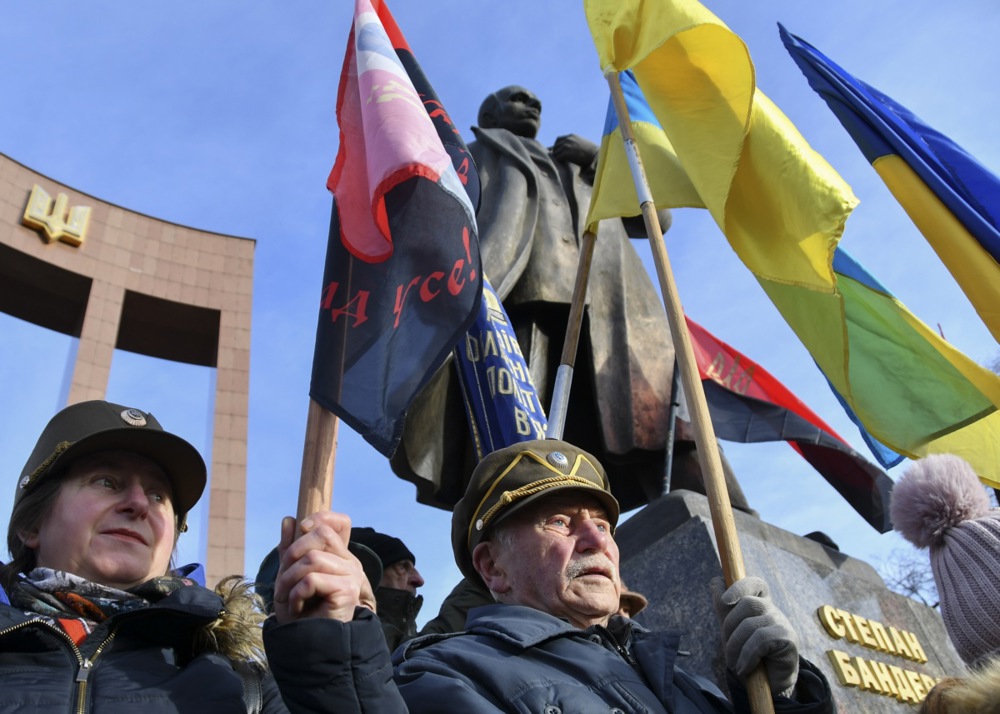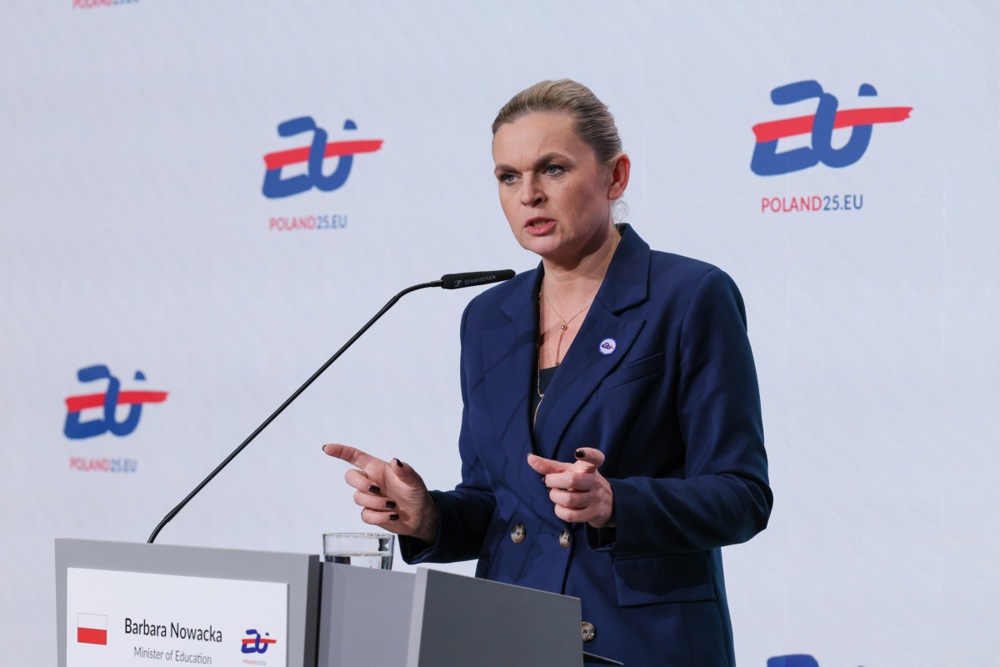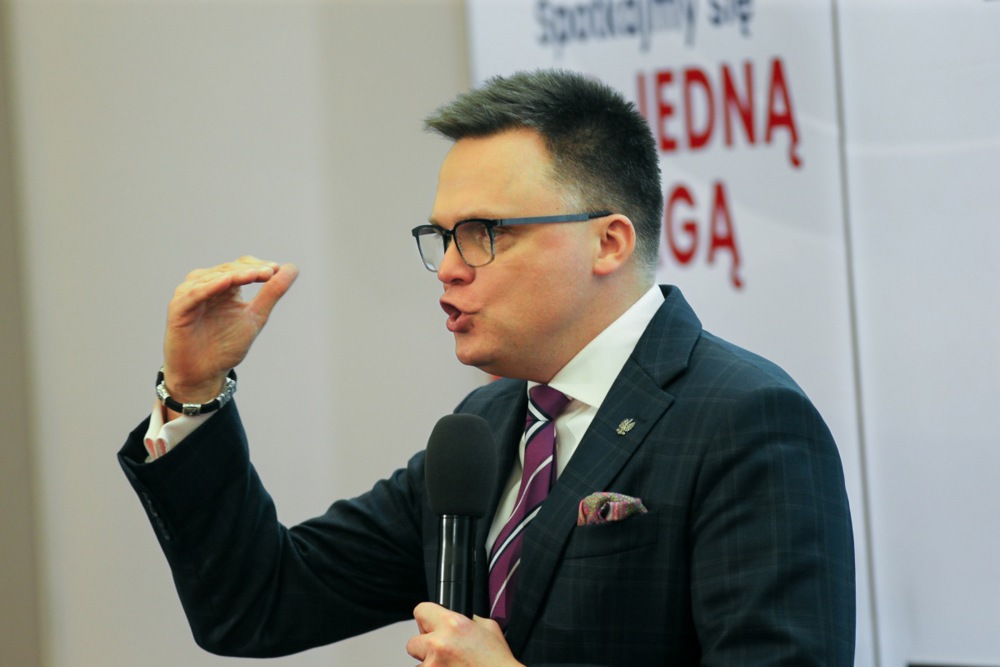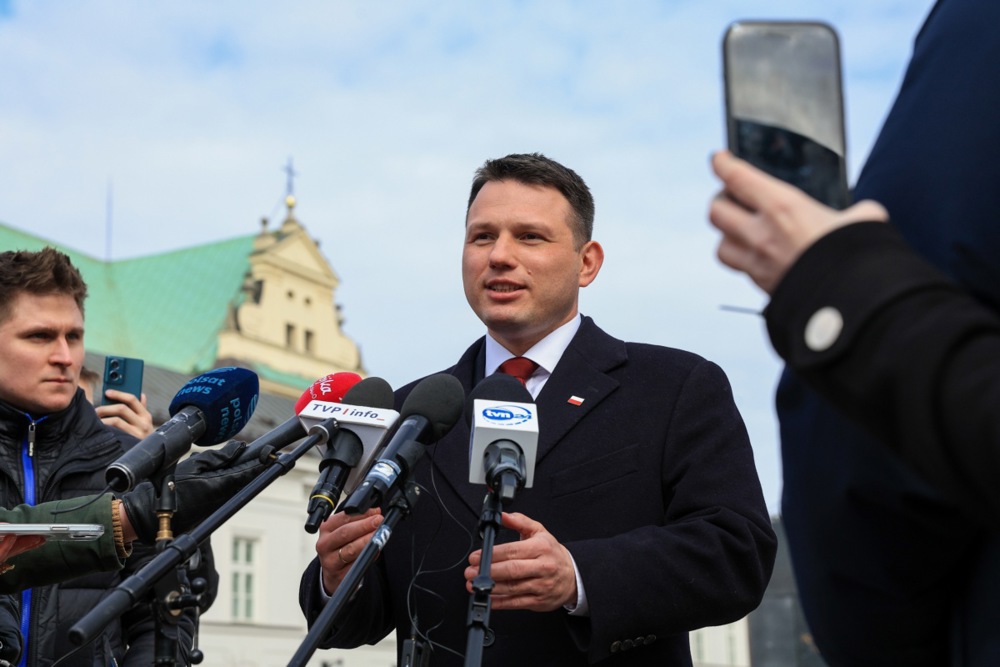The joint leader of Poland’s opposition Confederation party said he was against the Ukrainian minority in the country having its own representation in the Polish parliament.
Sławomir Mentzen MP, who came third in the presidential elections in the spring, said on October 6 that Poland “cannot allow” Ukrainians, the country’s largest immigrant group, to have representation in parliament because they would pursue their own interests at the expense of Poland’s.
“Ukrainians in Poland want to have an increasingly greater influence on our politics,” declared Mentzen. “There are already two million of them here, and now they plan to gain representation in parliament as early as 2027.
“We cannot allow Ukrainians to have their own representation in parliament,” he added.
“MPs elected by Ukrainians will surely take care of Ukrainian interests. For us, Polish interests should be the most important.”
His remarks came in a debate initiated by the opposition Conservative (PiS)-aligned President Karol Nawrocki, over plans to toughen the criteria for foreigners to obtain Polish citizenship. They included extending the time they must reside in Poland before being eligible for naturalisation from three to 10 years.
The justification for the bill states that the current three-year requirement “is one of the shortest in the European Union”. It says that a longer period is needed to “create conditions conducive to fuller integration of foreigners before granting them Polish citizenship”.
Mentzen wrote on X that Poland “must extend the time required to obtain Polish citizenship”, adding “let’s stop granting Polish citizenship to Ukrainians!”. That was reference to the fact that out of the record 16,000 citizenships granted to foreigners last year, Ukrainians accounted for more than half.
He admitted that he was responding to arguments put forward by journalist Olena Babakova in the Ukrainian publication European Pravda calling for greater involvement by Ukrainians who obtain Polish citizenship in Polish politics.
“Assuming that 70-80 per cent of Ukrainians who have already received long-term residence permits in Poland will want to apply for a Polish passport, this will enfranchise tens of thousands in the next few years,” wrote Babakova.
“These numbers are enough to at least begin to influence the outcome of the elections in specific districts where foreigners most often live. “Simply put, Ukrainian migrants could possibly get a chance for their own political representation in the Sejm as early as 2027,” the date of the next general election, she added.
Mentzen’s party, which is averaging around 15 per cent in opinion polls, disagreed.
“Ukrainian journalists write articles in which they express outrage that we do not want to allow them to rule our country.
“They feel entitled to tell Poles how our homeland should look! They have no right to do this. Let’s not allow foreign interests to decide Poland’s future,” he stated.
Under Poland’s Constitution, recognised national minority members can stand for parliament. That for many years allowed the German minority in the region of Opole in the south of Poland to elect MPs.
The PiS is in favour of changing the Constitution to remove the exemption from the election threshold for national minorities, arguing that Germany, whose minority has benefitted from the Polish provision, does not have reciprocal minority rights for Poles living in Germany.
Over the past decade, Poland has experienced levels of immigration unprecedented in the country’s history and among the highest anywhere in Europe. Between 2017 and 2022, Poland issued more residence permits for migrants from outside the European Union than any other member state.
The majority of arrivals, an estimated 1.5 million to 2 million, have been from Ukraine, including refugees, economic migrants and students, who now make up an estimated 4 per cent to 5 per cent of the country’s population.
Attitudes towards Ukrainians were highly empathetic in the months that followed the full-scale Russian invitations of that country in 2022 and its refugees were granted full social security, employment and healthcare rights.
Attitudes, though, have changed in recent times as a result of many Poles feeling that these benefit rights have been abused. The Ukrainian unwillingness to reject Ukrainian nationalist figures such as Stepan Bandera, responsible for the slaughter of some 100,000 Polish civilians during the Second World War, also causes tensions.
Both the PiS, Confederation party and Tusk’s ruling Civic Coalition (KO) are now supporting restrictions on benefit rights and increasing the demands on foreigners attempting naturalisation in Poland.





